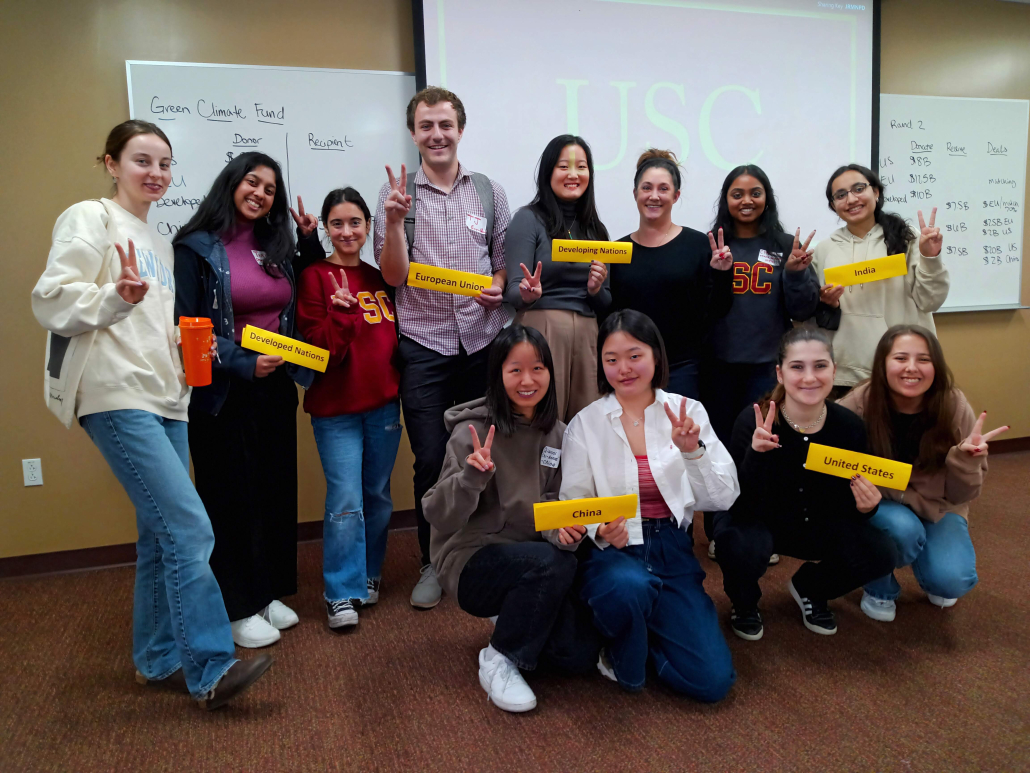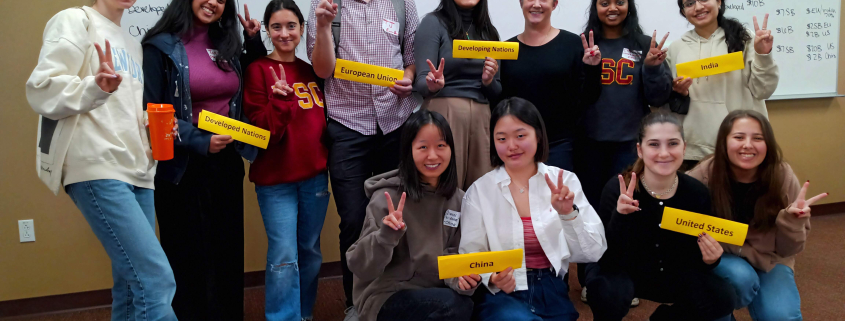POIR to negotiate funding beloved USC outreach center

In late February, Teresa Hudock was notified that the Dornsife College of Letters, Arts, and Sciences would withdraw its contribution of funding for the Center for Active Learning in International Studies, an outreach organization that supports education in international relations.
Previously a high school teacher, Hudock began working in outreach at USC in 1984 and helped found CALIS in 2000. She now serves as its director. CALIS aims to adapt university-level knowledge for students at public middle and high schools through curriculum development, teacher training programs, student conferences and its flagship program, the Teaching International Relations Program.
Through TIRP, a small team of USC students teach interactive lessons in international relations at local high schools. Students build their curriculums using an online database developed by CALIS staff with case studies and analytical frameworks to help students digest complicated topics. The database is also free for teachers to access to use in their own lesson plans.
Dornsife’s Department of Political Science and International Relations is currently in the process of negotiating a deal to fund the center. Without a deal, the entire center could be cut, including the positions of Hudock and four other CALIS staff members.
Estela Leon, a teacher at Foshay Learning Center and a partner with TIRP, said her students benefit from the “rich knowledge” of TIRP lessons and the unique mentorship opportunity that USC students provide.
“For my students to see someone very close in age, maybe a year or two older, it also brings in that college experience of ‘Oh, wow. If they can do it, I can do it,’” Leon said. “So for it to disappear — it’s such a disservice to our community.”
This is not the first time CALIS has struggled to secure funding. The Enron scandal and the California budget crisis in the early 2000s, the Great Recession in 2008 and the most recent recession caused by the coronavirus have all impacted funding opportunities for CALIS, Hudock said. In 2019, the School of International Relations merged with the School of Political Science to form POIR, setting the stage for the organization’s most recent funding challenge.
Dornsife assumed responsibility from SIR in funding CALIS as part of the merger, including the organization under its Office of Experiential and Applied Learning, Dornsife’s hub for experiential learning opportunities. However, while Dornsife ultimately intended on transferring the responsibility back to POIR, Dornsife withdrew funding before POIR had agreed to assume it, Hudock said. Dornsife and POIR are currently negotiating the transfer of responsibility, quelling concerns about the center’s discontinuation.
“This has been a center of longstanding importance to our faculty and students,” wrote Sally Pratt, a chair of POIR, in a statement to the Daily Trojan. “The Department of Political Science and International Relations and the College continue to work actively with the CALIS director to ensure programming continuity.”
Professor Steven Lamy, a former director of the SIR who helped launch TIRP, joined a coalition of four other former directors of SIR in 2019 to issue a letter to the Daily Trojan voicing their disapproval of the merger, writing that it led to “cuts to undergraduate resources.”
In an interview with the Daily Trojan, Lamy said that outreach organizations such as CALIS no longer seem to be a priority for POIR following the merger.
“We had two different cultures merged, and it’s created a new culture,” Lamy said. “The emphasis now of the new department is much more on the traditional focus of a department and that is on research and on graduate students.”
In early April, two CALIS research assistants, Thomas Martynowicz, a senior majoring in international relations, and Christina Chkarboul, a junior majoring in earth sciences and global studies — who serves as the Daily Trojan’s managing editor — launched a petition to show support for the center in light of funding concerns. Though it garnered 29 signatures from USC students and alumni, Martinowicz said the petition was largely ineffective.
“Despite [what] we did during the petition, I think that the Dornsife administration missed our ultimate objective, and just pushed it off to POIR and didn’t really see that we believe that this is really a Dornsife program, and it should be recognized as such,” Martinowicz said.
Despite current funding concerns, CALIS continues to expand. In Fall 2022, Luca Johnson, a junior majoring in international relations, helped launch a chess outreach program for local fifth and sixth graders.
Hudock also anticipates the continuation of the organization’s ongoing expansion initiative to bring service learning opportunities to local elementary and middle schools.
“It’s been a roller coaster,” she said about her time with CALIS. “It’s been really gratifying that each time we’ve taken a really existential hit, we’ve been able to come back stronger.”

